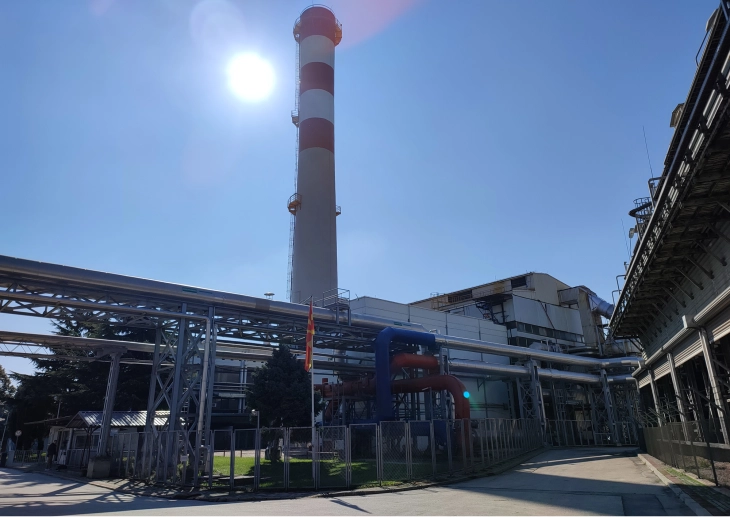ESM to assess if 'Istok' and 'Zapad' heating plants can operate on diesel

Skopje, 3 November 2022 (MIA) – The Power Plants of Macedonia company (ESM) is set to perform a practical assessment, after November 15, on whether the 'Istok' and 'Zapad' heating plants can operate on diesel. The test period will last 10 days and has been made possible by the favourable weather conditions and the reduced consumption of electricity, said the head of ESM, Vasko Kovachevski on Thursday.
According to Kovachevski, ESM has already secured enough natural gas for the heating plants until November 15. Immediately after taking over the 'Istok' and 'Zapad' heating plants, ESM began preparing the heating plants to be able to operate on diesel fuel as an alternative option in case there is a lack of natural gas or if gas prices are extremely high.
“From November 15 we will move the heating plants to diesel for a test period, in order to assess the system and see if it can operate on this fuel since in the past it operated on mazut which is not environmentally friendly. We are doing this so we can make sure that we will be able to meet heating energy needs during the later period of the heating season or in the upcoming heating seasons in case there are issues with the supply of natural gas,” said Kovachevski.
He said that when the private gas cogeneration power plant TE-TO is operating, it provides around 60 percent of the necessary heating energy for the Skopje heating system, while the remaining 40 percent are provided by the 'Istok' and 'Zapad' heating plants.
“Precisely because of this and because of the favorable weather conditions, the ESM technicians are planning to carry out the assessment. It will not take more than 24 hours for the heating plants to switch over to diesel, but that does not mean that the citizens of Skopje will be left without heating during this period. One of the heating plants will switch to diesel first, then the other, but most of the heating energy will continue to be provided by TE-TO and the delivery of heating energy will not be reduced,” said Kovachevski.
The switch to a different fuel, he said, is being done so that they, as a company but also the citizens, can make sure that there will be enough heating regardless of the circumstances with the gas supply in the upcoming period.
“The technicians are planning for one of the heating plants to run on diesel for at least 10 days so they can monitor the parameters and assess the entire system. Ten new state-of-the-art diesel pumps have been installed in both heating plants and the system previously used for mazut is now being cleaned up. The technicians will determine how many additional days they need to ensure that the system can operate on diesel,” said Kovachevski, adding that EUR 330.000 will be spent on the pumps and on the cleaning of the system.
He noted that the state has diesel reserves and it is more widely available and easier to use in order to manage a gas crisis, compared to mazut which is not available and causes more pollution.
According to Kovachevski, if the heating plants were to operate on diesel the production of heating energy would currently be cheaper by 20 to 30 percent compared to gas, but due to environmental reasons the heating plants will operate on gas unless gas supply issues arise. ad/nn/







